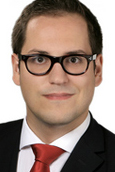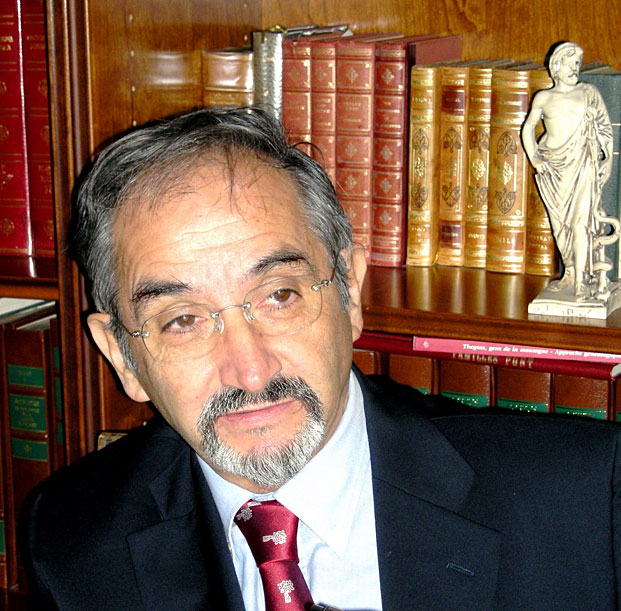Frederik Cyrus Roeder

Frederik Roeder is a German health economist. He studied hospital management, health economics and international business at the universities of Goettingen (Germany), Bayreuth (Germany), Maribor (Slovenia), and Tongji Shanghai (China). He has worked as a Visiting Professor for Health Economics at the Lithuanian University of Health Sciences and as a Visiting Professor for Healthcare Management and Economics at Ilia State University (Georgia). Fred Roeder is the Managing Director of Healthcare Solutions, a service focused on know-how transfer and policy advise for healthcare systems in transition.
Michael Schlander
Professor Michael Schlander MD, PhD, MBA is a health economist at the University of Heidelberg and a professor of health care and innovation management at the University of Applied Economic Sciences, Ludwigshafen. He is the founder and scientific director of the Institute for Innovation and Valuation in Health Care (Inno Val HC) a not for profit institute based in Eschborn, Germany. Professor Schlander who is also a physician has written ground-breaking studies on the role and limits of current evaluation methodology in adminstrative assessments of medical innovation.
Nicoleta Acatrinei
Graduate in economics and in theology, Nicoleta is currently preparing a PhD at the Swiss Federal Polytechnicum (ETH) in Zurich. She has spoken and written on topics related to ethics, economy and theology in Switzerland, China, Denmark and others. She is the author of "St Jean Chrysostome et l'Homo Oeconomicus" a scholarly work that explores the theological roots of market ethics. She has joined Medicine & Liberty in 2009 as our research fellow in charge of Ethics in Economics.
Francis Thevoz
Dr Francis Thevoz is a Cardiovascular surgeon by training. Past-president of the Société Vaudoise de Médecine he is also a former councilor of the City of Lausanne where he served as Director of finances. He is currently a member of the finance commision of the city's parliament. Francis will notably participate in the development of MedLib's, Privamed-Pro project.
Sophie Crespo
Sophie Crespo MD, our special projects & editorial consultant based in Geneva, graduated from Basel University Medical School. She holds specialist titles in intern al medicine and anesthesiology.
Contact: sophiecrespomd@medlib.ch
Fabienne Gay-Crosier
Dr Fabienne Gay-Crosier, joined MedLib's Medical Advisory Council in 2014. She is past president of the professional policy commisssion at the Swiss Society of Clinical Allergology and Immunology and is a firm advocate of professional independence for physicians. Author of "Geneva's White Paper on Allergy" Fillon Impr. Oct. 2015.
Loredana D'Amato Sizonenko MD
Dr D'Amato Sizonenko is a geneticist specialized in rare diseases. She is presently Coordinator for Switzerland of Orphanet, an international database of information on rare diseases and orphan drugs for all publics, designed to contribute to the improvement of the diagnosis, care and treatment of patients with rare diseases.
Martín Krause
Martin Krause is the diirector of the Centro de Investigations de instituciones y Mercados de Argentina: professor of Economics at the University of Buenos Aires.
Philip Stevens
Philip Stevens, Director of Policy at International Policy Network, London is the author of numerous health policy publications, including Fighting the diseases of Poverty (2007), Free trade for better health (2006) and The 10/90 Gap and the diseases of poverty (2004). He has also held research positions at the Adam Smith Institute and Reform in London and holds degrees from the London School of Economics and Durham University.
Shahnaz Radjy
After graduating in Biology at UPenn in Philadelphia, Ms Shahnaz Radjy was active in humanitarian action in Bolivian hospitals, and founded an A-TIC internet venture in Bolivia. She has also organized events for the International Labor Organization in Geneva and worked for the Davos World Economic Forum. Shahnaz is now based in NY and works as senior communications specialist for Vitality.
Bart Madden
Bartley Madden is an independent researcher who has developed "Dual Tracking": a fast lane for access to experimetal medicines, that also introduces an open database on new therapies. Bart Maddens concept is supported by Vernon Smith, Nobel prize in economics 2002 and by other reputed US economists. He has authored a monograph: "Dual Tracking, More Choices Better Health" edited by the Heartland Institute, Chicago.
Stefan Metzeler
Graduate from the Ecole Polytechnique Fédéerale de Lausanne (EPFL). Information and technology specialist, owner at Amadeus IT solutions. Swiss representative fo the International Society for Individual Liberty ISIL.
Contact: smetzeler@medlib.ch
Pierre Bessard
Executive Director of the Institut Constant de Rebecque, Lausanne, and President of the Liberales Institut, Zurich
Henri Siegenthaler
President of the Swiss Society for the Independence of medicine and editor in chief of « Der Arzt und sein Patient / Le Médecin et son Patient » Journal. Author of "Serons nous tous euthanasiés?" Ed.Cabedita (2015).
Pierre Lemieux

Professor of economics at the University of Québec in Outaouais. Author of "Le Droit de porter des armes"(1993), "Comprendre l'économie (2008) and other works such as "Public Health Insurance under a Non Benevolent State". Editor of Liberty in Canada online tribune.
Georges Lane
Georges Lane is a Professor of economics at the University of Paris-Dauphine where he teaches insurance economics.
Philip Stevens
Philip Stevens, Director of Policy
Philip is the author of numerous health policy publications, including Fighting the diseases of Poverty (2007), Free trade for better health (2006) and The 10/90 Gap and the diseases of poverty (2004). His writings on health policy have appeared in a wide range of international newspapers. Philip has also held research positions at the Adam Smith Institute and Reform in London, and spent several years as a management consultant. He holds degrees from the London School of Economics and Durham University.
Ernest Truffer
Swiss ENT surgeon and medical philosopher. One of the founding members of IATROS, a world organization of private and independent physicians. Writes regularly on medical ethics and other issues in various medical journals and in his blog.
Ernest unfortunately passed away on March 11th, 2015 and wil be deeply regretted by all those who knew him. The founding principles of Medicine and Liberty were strongly influenced by his profound understanding of the medical mission and his uncompromising attachment to Hippocratic ethics.
Gabriel Calzada
Professor of economics at the Universidad Rey Juan Carlos, Madrid. Founder of Medicina en Libertad (MedLib.es) and of Madrid's Instituto Juan de Mariana.
Gabriel is president of Francisco Marroquin University in Guatemala and member of the presidential board of the prestigious Mont Pelerin Society
Victoria Curzon Price
Professor of economics at the University of Geneva. President of Institut Constant de Rebecque, Lausanne. Member of Geneva Parlliament. Past president of the Mont Pelerin Society.
Rudolf Mayer
A practicing Opthalmologist in Lausanne. Active in Swiss medical professional politics he is a staunch defender of medical autonomy. He is on the editorial board of the Swiss medical journal "Arzt un Patient" (Physician and Patient)
Alphonse Crespo
Alphonse Crespo founder and executive director of Medicine and Liberty. Swiss orthopedic surgeon, author of Esculape Foudroyé (Les Belles Lettres 1991), ISBN 2-251-39008-1 and of numerous essays and articles such as Black Market Medicine an Ethical alternative to State Control, Outlawing Medicine or The End of Welfare and its effect on the Poor. President of the Cercle de philosophie politique Benjamin Constant at the Institut Libéral a Swiss think tank founded in 1979. Also conducts Med-Consilium a Swiss accident insurance consulting & assessment independent service.
Serban Sichitiu
Reputed paediatrician practicing in Lausanne. He was one of the founders of Switzerland's Patient and Physician Union active in the defense of patient and phyisician rights and liberties.
Medicine & Liberty
Sentier de la Tour-Carrée 9
CH-1800 Vevey - Switzerland
Tel & fax: 41 21 922 60 82
info@medlib.ch
The Poisoned Tip of Prussian Helmets
What do Swiss socialists have in common with Arnold Schwarzenegger?
Some would say : their push to dope government’s muscle through regulated health insurance. Not that there is much to object to such potions. The faster regulated medical care hits the floor, the sooner will we fully turn to the market for a cure to present woes. In 2007 the Swiss had to vote on a socialist proposal to replace their pluralistic health insurance system by a single national insurance model. This institutional dinosaur would have been fed by premiums (pegged to income) and tax hikes. Although the Swiss are not immune to socialist rhetoric, they know how to count: the socialist single provider initiative was firmly rejected by citizen vote. On June 1st 2008, the Swiss will vote on yet another constitutional article that would empower government and health insurance bodies with wide rationing powers both in hospital funding as in patient choice of doctors. Californians are not quite there yet. The more naive were ready to welcome their Governors’ complicated access route to care. Arnold Schwarzenegger did not propose a single insurance provider. Neither does candidate Hillary Clinton for that matter. Their recipes for health care reform would however, increase government’s predatory grip on employers and healthcare providers.
The Austrian Connection
Interestingly, some features of both Arnold Schwarzenegger’s health plan and the Swiss socialists’ health insurance models seem cut and pasted from Austria’s social security system. It is true that both the Swiss and the former Hollywood muscle man bowed to Austrian authority in past history. Wilhelm Tell boldly rejected Austrian subjection many centuries ago and his scions have all but ignored their eastern neighbor ever since. Conversely there may be a touch of nostalgia in Arnold Schwarzenegger’s moves to make California’s health care look a little more like Austria’s.
Austrians are partly indebted to Hitler for their sickness insurance model. The ruthless Prussian war machine hauled into Austria by the Nazis after the fall of the Habsburgian Empire went hands in hands with a redemptive social insurance model designed by Bismarck. Pointed helmets rust in the graves of History. Bismarck's blueprint for authoritarian social security has outlived both World Wars. It still scaffolds Austria’s welfare state and others. Austrian health insurance is controlled by a powerful bureaucratic institution: the Haubtverband der Socialversicherungstrager. Insurance premiums are pegged to income and claim approximately 7.4% of salaries. Patient choice is restricted to providers approved by the Hauptverband. Approximately one third of doctors are excluded by this body. Austria’s health reform processes favor an interventionist, state-governed approach. At the dawn of the 20th century, Austrian medicine was one of the most reputed in Europe. It now lags in the ranks of the has-been and looks up to Switzerland or the USA for innovation.
Intrusive health care reforms ultimately limit individual choices in a field as important as health… at a prohibitive cost! In this, Arnold Schwarzenegger, Hillary Clinton and Swiss policy makers ride against the tide. Their projects for regulated insurance stem from authoritarian models designed in the wake of the 19th Century, that failed in the 20th Century and that are largely obsolete in the 21st. Enlightened economists severely question Bismarckian and Beveridgian principles of health care funding and delivery. They acknowledge the potential of instruments such as patient choice, deregulated contracts, true risk-based insurance, health banking and private philanthropic ventures. Market incentives are now being called to the rescue in traditional strongholds of socialized care such as Scandinavia or even in Canada after the Chaoulli ruling of the Supreme court that lifted an iniquitous ban on private healthcare.
Insurance is no Deus Ex-Machina
Insurance is no more than a tool amongst many others designed to cope with unpredictable risks and unpleasant certainties that afflict the course of human existence. Insurance does not make people healthier, it does not make doctors more efficient, it does not multiply hospital facilities and will not stop individuals from passing away when their time has come.
By crediting regulated health insurance with magical powers that it does not have and at great expense, politicians blur the path to other innovative means of financing our health care needs. In that respect, President Bush past proposals of tax discounts for health insurance offer a modest though possibly more efficient way of improving insurance coverage without inhibiting other forces that can deal with healthcare more efficiently and humanely than big government and its bureaucracies.
Human progress stems from an incremental trial and error learning process that spans over generations. Some lessons are learned the hard way. It took more than half a century of gulags before eastern Europeans discarded totalitarian utopias spawned by hardcore socialism. It may take us longer to discover that even in democratic societies, political wishful thinking and worn out social security models deliver neither health nor security and cost dearly in terms of liberties.
Vox-Medici Commentary
N° 0 - March 2008
March 19, 2008

 RSS feed
RSS feed